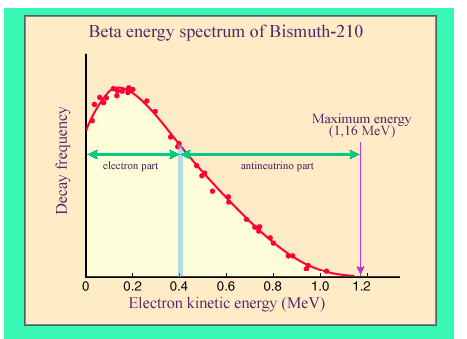If we consider a hypothetical situation in which $\beta^-$ deacay is happening without emitting any anti-neutrino, to be precise, a neutrinoless beta decay is happening. So, in this case, how the energy spectrum will look like?
I know the energy spectrum in case when the beta decay takes place along with emitting an anti-neutrino. But I do not have any knowledge what will the spectrum look like when the anti-neutrino is not being emitted. If anyone can provide the spectrum along with explanation, that will be a great help. I am attaching the spectrum when anti-neutrino is emitted.

